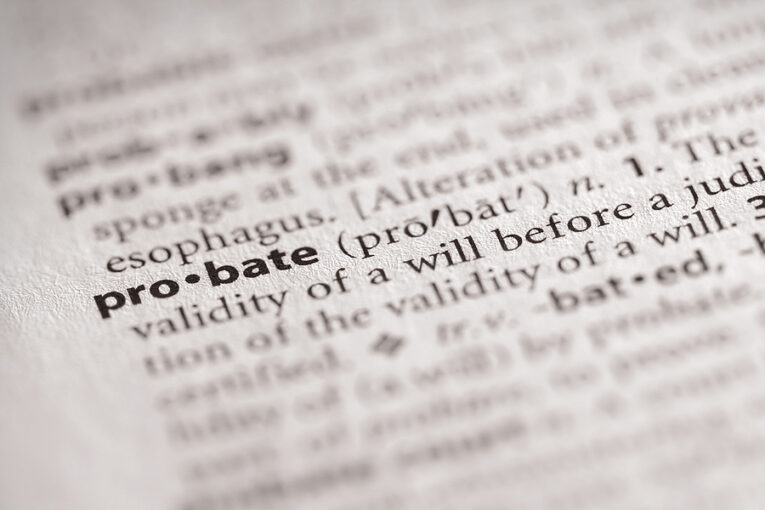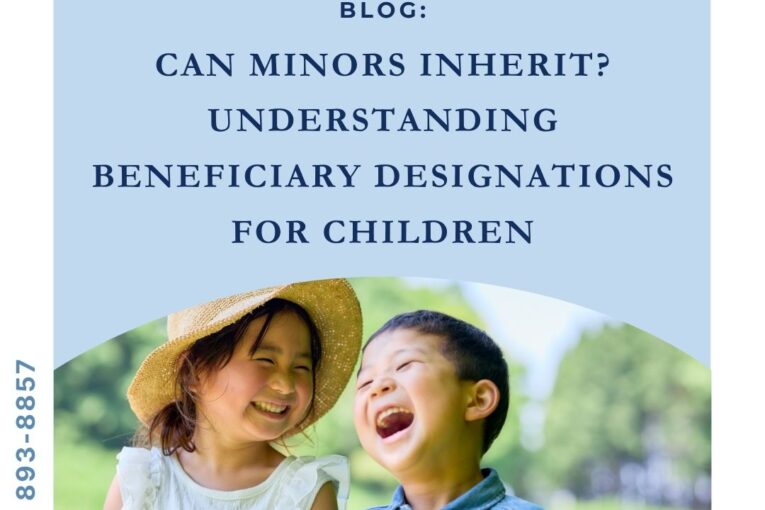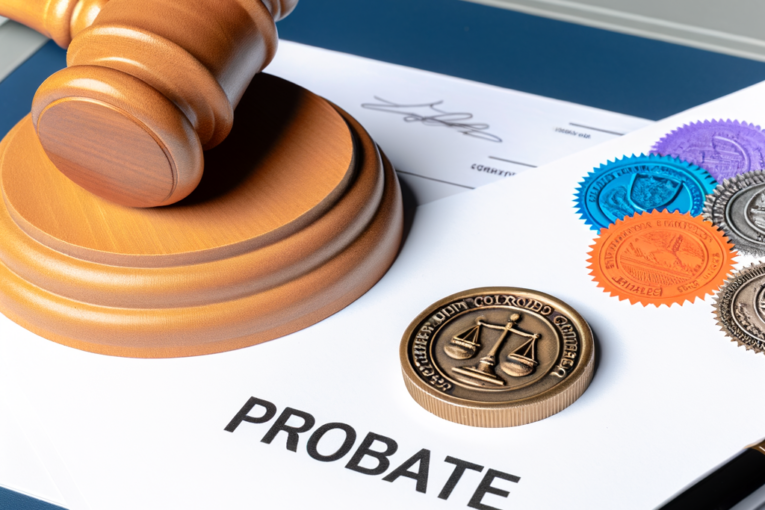Probate is the legal process of administering and distributing a deceased person’s estate. It involves validating the will, inventorying assets, paying outstanding debts, and distributing property to heirs. The type of probate process required depends on factors like the estate’s size, complexity, location of assets, and family situation.
Navigating the Probate Maze: Key Considerations
The most crucial factor determining the probate process is whether the decedent left a legally valid will. Estates without a will must go through formal court-supervised probate. Estates with a clear, undisputed will have more flexibility, like informal or unsupervised probate.
Court oversight also shapes the probate approach. Formal probate requires regular court participation, while informal probate limits court involvement. Supervised and unsupervised probation offer varying degrees of court supervision.
Estate size matters too. Very small estates may use streamlined small estate procedures. Larger or more complex estates often need closer oversight. Assets like out-of-state real estate require ancillary probate.
Family dynamics also affect probate. Disputes between beneficiaries may necessitate court supervision. Cooperative families can use less formal procedures. An experienced probate attorney can advise which option best suits each unique situation.
Types of Probate Explained
A. Formal Probate: A Step-by-Step Guide
Formal probate is a structured, court-supervised legal process for administering estates. It is required if:
- There is no valid will
- Beneficiaries dispute the will
- Complex family or estate asset situations exist
Steps in formal probate include:
- Filing a petition with the probate court
- Notifying all beneficiaries
- Court hearings to validate the will and appoint an estate representative
- Filing a detailed inventory of estate assets
- Obtaining court approval for asset distribution
- Closing the estate by filing a final account with the court
Formal probate offers stricter court control but is costlier and takes longer. An attorney can guide you through the process.
B. Informal Probate: A Simplified Approach
Informal probate provides a simplified option for some estates. Eligible situations include:
- Clear, undisputed wills
- Simple estates
- Cooperative family dynamics
With informal probate, certain steps occur outside court:
- File required paperwork, like the will or affidavit
- Notify beneficiaries about the proceedings
- Handle estate administration, like paying debts
- Distribute assets according to the will
Benefits include faster resolution, lower costs, and less court time. However, informal probate offers less court supervision than formal probate.
C. Supervised Probate: Ensuring Fairness and Security
Supervised probate involves close court oversight of estate administration. The court may require supervised probate when:
- Estate assets are very valuable or complex
- Beneficiaries quarrel over asset distribution
- Special needs beneficiaries, like minors, are involved
In supervised probate, the court approves filings like inventory and financial accounting. The judge may also authorize essential decisions regarding property sales or business interests.
Benefits of supervision include preventing financial abuse, ensuring compliance, and resolving beneficiary disputes fairly. It provides accountability but is more time-intensive and costly than unsupervised probation.
D. Unsupervised Probate: Streamlining the Process
In unsupervised probate, also called independent administration, the personal representative handles most estate details without court intervention. It is suitable when:
- There is a clear, uncontested will
- Beneficiaries agree on asset distribution
- Assets and debts are straightforward
Steps in unsupervised probate typically include:
- Filing required paperwork, like the will
- Notifying creditors and beneficiaries
- Handling asset management and bill payments
- Distributing property to heirs per the will
Advantages of unsupervised probate include faster resolution, lower expenses, and simpler coordination for successors. However, lack of court oversight reduces accountability compared to supervised processes.
E. Small Estate Probate: A Faster Option for Qualifying Estates
If an estate falls below a value threshold like $74,000, it may use small estate probate options like summary procedures or affidavit processes. This saves time and costs.
Criteria for small estate probate depend on state law. Some only consider probate assets like solely owned properties. Benefits include quicker payouts to beneficiaries and reduced legal bills.
However, small estate rules differ by state and may not cover all estate assets. Non-probate property, like joint tenancies, often requires additional filings. Consulting a legal advisor is crucial when navigating probate for smaller estates.
F. Ancillary Probate: Handling Out-of-State Assets Smoothly
If an estate includes assets like real estate located in multiple states, each state requires ancillary (secondary) probate filings. This ensures compliance with local probate laws.
The process involves:
- Filing an ancillary petition similar to the main probate case
- Following all estate procedures required in that state
- Settling local creditors before transferring funds
- Coordinating closely with the primary probate case
Ancillary processes facilitate out-of-state property transfers, protect beneficiary interests, and establish state-specific probate rules. Handled improperly, ancillary probate can significantly complicate estate settlement across state lines.
G. Summary Administration: A Quick and Easy Solution for Small Estates
Some states offer summary administration procedures for estates meeting special conditions like:
- Estate assets fall below a gross value threshold
- No complex asset structures or ownership exist
- Clear title to all property
The process expedites probate by:
- Filing simplified paperwork like affidavits
- Quickly obtaining court approval
- Transferring assets using simplified procedures
Benefits include lower costs and quicker closures. However, summary administration may not suit estates with complicating factors like litigation or unclear property titles. The probate process in those situations may necessitate fuller court processes.
Conclusion
The type of probate hinges on considerations like a will’s existence, family dynamics, estate size, asset complexity, and cross-state factors. Key options include formal, informal, supervised, unsupervised, small estate, ancillary, and summary administration procedures. Each involves varying degrees of court control, legal requirements, costs, and duration.
With so much at stake, partnering with an experienced probate attorney is invaluable when navigating this complex process. They can advise on the most suitable approach and smoothly guide each required step. Don’t leave the fate of your estate to chance. Contact the competent legal team at Anzen Legal today for reliable guidance and support with your probate and estate planning needs.
This article provides an overview of different probate types. Those facing probate should carefully consider their situation and consult qualified legal counsel for case-specific guidance. Reach out to Anzen Legal for personalized assistance creating an estate plan that fits your unique needs and legacy goals.
Additional Resources
American Bar Association: Estate planning and probate resources
FAQs
Probate is the legal process of administering and distributing a deceased person’s estate. It involves validating the will, inventorying assets, paying outstanding debts, and distributing property to heirs. This process ensures that the estate is settled according to the law and the decedent’s wishes.
The presence of a legally valid will can simplify the probate process. Estates with a clear, undisputed will can often use informal or unsupervised probate, which involves less court oversight and can be quicker and less costly than formal probate.
Formal probate is a court-supervised process required for estates without a valid will, disputed wills, or complex family or asset situations. It involves multiple court hearings and approvals. Informal probate is a simpler process for clear, undisputed wills and straightforward estates, requiring fewer court interventions and typically being faster and less expensive.
Supervised probate is necessary for estates with valuable or complex assets, beneficiary disputes, or special needs beneficiaries like minors. The benefits include close court oversight, preventing financial abuse, ensuring compliance, and fairly resolving disputes among beneficiaries, though it is more time-consuming and costly.
Small estates may qualify for streamlined procedures such as small estate affidavits or summary administration, which expedite the probate process. The criteria for these options depend on state laws, typically considering the estate’s value and asset complexity. These procedures reduce costs and speed up asset distribution.





